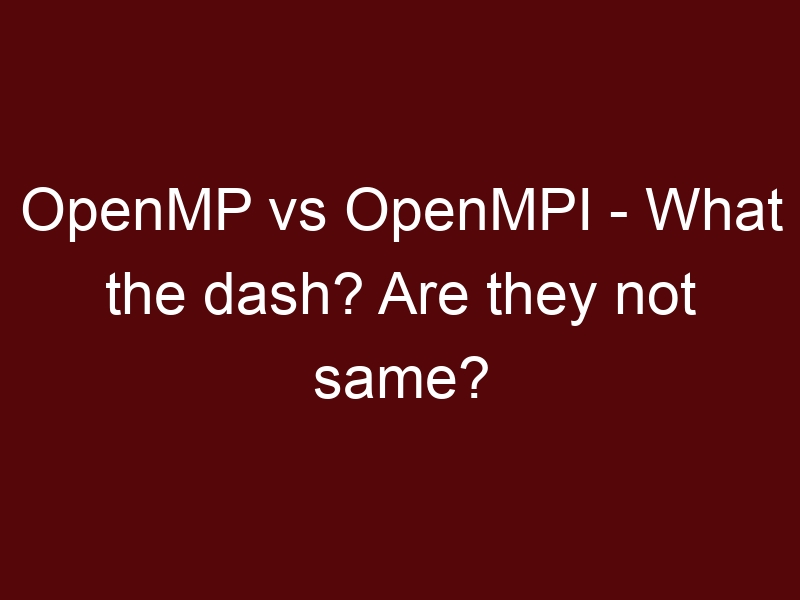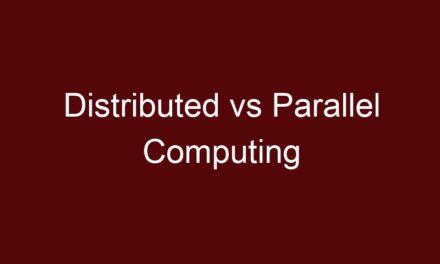OpenMP and OpenMPI are not the same thing. They are two distinct technologies used in the field of parallel and distributed computing, but they serve different purposes and have different implementations.
- OpenMP (Open Multi-Processing):
- OpenMP is an API (Application Programming Interface) that is used to create shared-memory parallel programs in a programming language such as C, C++, or Fortran.
- It allows developers to parallelize code by adding directives to their source code. These directives provide hints to the compiler about how to parallelize specific sections of code.
- OpenMP is particularly well-suited for exploiting parallelism on multicore processors and SMP (Symmetric Multi-Processor) systems.
- It’s often used for tasks like loop parallelization, where a single program is divided into threads that execute concurrently on multiple CPU cores.
- OpenMPI (Open Message Passing Interface):
- OpenMPI is a library that provides a standardized and portable interface for communication and coordination between processes in distributed-memory environments.
- It is designed for creating message-passing programs that run on clusters of computers, where each node has its own memory and processors.
- OpenMPI enables processes to communicate and share data with each other by sending messages between them. This is essential for coordinating the work of different processes in a parallel or distributed application.
- It’s often used for tasks like running parallel simulations, solving large-scale numerical problems, and performing distributed computing across a cluster.
In summary, OpenMP is focused on creating parallelism within a single program using shared-memory multiprocessing, while OpenMPI is focused on enabling communication and coordination between processes in a distributed-memory environment. They can also be used together in certain scenarios, such as when a parallel application created using OpenMP on a single node needs to communicate with other nodes using OpenMPI.



